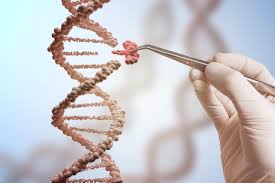11 June 2025 | Wednesday | News

SynaptixBio, the only company licensed to commercialise a treatment for a rare, deadly disease, says the drug could halt disease progression and even reverse some symptoms
Oxford-based SynaptixBio, which is developing a therapy for a rare, deadly, and currently incurable rare disease (H-ABC), says it has identified the drug it will take forward into clinical trials.
The drug, SB H-19642, is an antisense oligonucleotide (ASO), which is a short strand of synthetic DNA that stops mutated genes from producing toxic proteins. The mutated gene is ‘silenced’.
Dan Williams PhD, CEO at SynaptixBio, said; “This is a hugely significant milestone. We are confident our candidate drug will deliver the same positive impacts that ASOs have made on other degenerative diseases such as Duchenne muscular dystrophy.
“The dangerous proteins produced by the single-gene mutation that causes H-ABC, the most severe form of TUBB4A-related leukodystrophy, have been shown in animal testing to be far less prevalent following treatment.
This means disease progression could be completely halted, and there is some evidence of symptoms being reversed.”
ASOs offer a range of benefits compared to gene editing; they are highly targeted, generally produce much fewer side effects, and have broad applicability. Most significantly, they are non-permanent, so can be stopped if dangerous side-effects do appear.
SynaptixBio has been working with global drug researcher Evotec to identify, develop, and qualify the ASO candidate. Results so far indicate that the drug is safe and stable, and initial testing has shown it to be effective in reducing the volume of toxic proteins arising from the mutated gene.
Meanwhile, the market for ASO-based therapies is growing dramatically; According to a report from May 2024 by Global Market Insights (GMI), it was worth $4.4 billion in 2023 and is predicted to grow at a CAGR off 18% to reach $19.7 billion in 2032.
GMI cites the increasing prevalence of neurodegenerative and genetic disorders, growing investments in research related to gene expression and delivery technologies, and the growth in regulatory approvals for antisense therapeutics as the key drivers behind this growth.
Dan Williams added; “Perhaps most importantly, ASOs target the molecular causes of disease, rather than just treating the symptoms. This makes them potentially game changing.”
ASOs have already been approved for SOD1 dependent ALS (Motor Neuron Disease), and are currently in trials for Alzheimer’s disease (University College London Hospital), where they have demonstrated promising results. They are also being investigated as a potential therapy for Parkinson’s disease amongst others.
ASOs are short synthetic strands of DNA or RNA that bind to the mRNA from a target (mutated) gene, preventing it from being translated into a dangerous protein.
Increased awareness of the diseases that ASOs are well-suited to address is also a factor in the growth of the market; patient advocacy groups have been effective in campaigning to make the public, medical community and governments aware of the nature and impacts of genetic disorders.
Dan Williams noted; “Here in the UK, the H-ABC Foundation has done a remarkable job in just a few years of raising awareness amongst the public and in the medical community of the devastating impacts this disease has on those affected and their families.
“It is particularly important that such rare diseases are identified as early as possible; delayed and misdiagnoses can lead to years of unnecessary suffering.”
SynaptixBio was recently awarded a £2 million BioMedical Catalyst grant from Innovate UK to support first-in-human clinical trials of its therapeutic targeting H-ABC.
This followed an earlier grant, in November 2023, from Innovate UK to expand the company’s search for rare disease therapies.
© 2026 Biopharma Boardroom. All Rights Reserved.